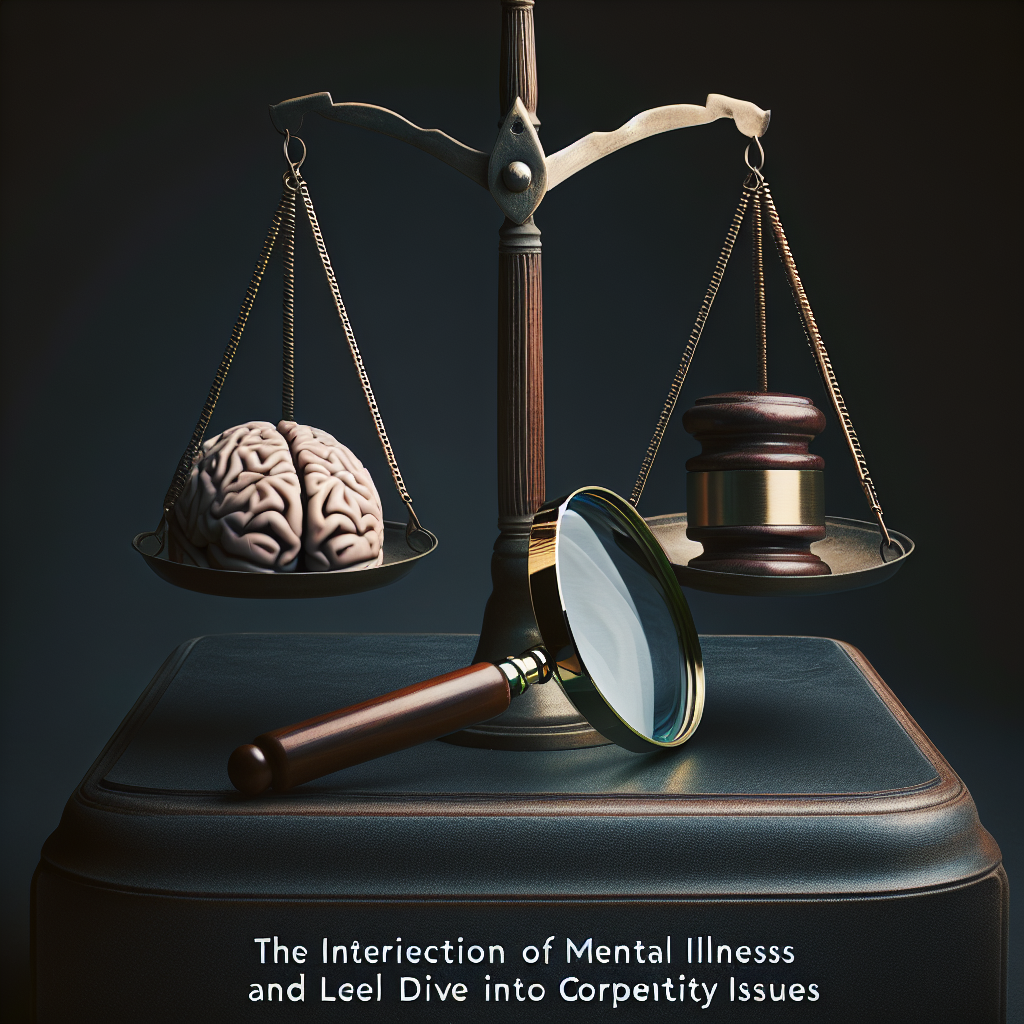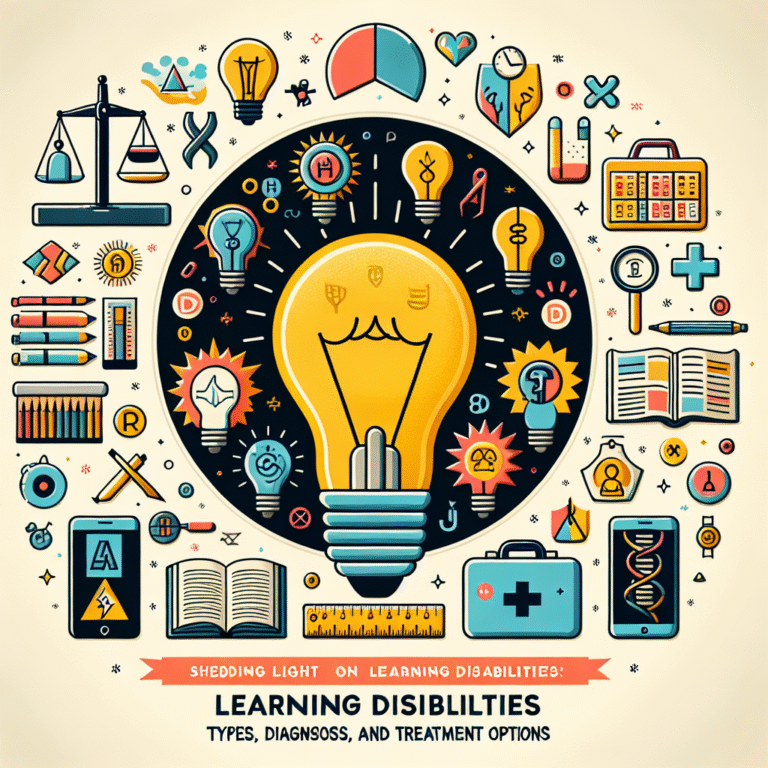
Introduction
The legal system serves as the cornerstone of societal order, but it becomes increasingly intricate when one raises the question: What happens when mental illness intertwines with legal accountability? The intersection of mental illness and legal accountability: a deep dive into competency issues reveals a landscape fraught with challenges, ethical dilemmas, and critical implications for justice. With an increasing number of individuals with mental health conditions involved in the criminal justice system, understanding these complexities is essential. This article explores the nuances of legal competency, case studies, and how best to navigate the often murky waters of mental health in legal contexts.
Understanding Competency in Legal Terms
Defining Competency
Competency refers to an individual’s capacity to understand and participate in legal proceedings. In criminal cases, this typically revolves around whether a defendant can grasp the nature of the charges, consult with their lawyer, and comprehend the consequences of their actions. When mental illness enters the equation, competency assessments become crucial.
| Key Factors in Determining Competency |
|---|
| 1. Understanding of Charges |
| 2. Ability to Consult with Counsel |
| 3. Appreciation of Courtroom Procedures |
| 4. Capacity to Make Informed Decisions |
The Historical Context
The intersection of mental illness and legal accountability has evolved significantly. Historical approaches often stigmatized mental health issues, treating them as moral failings rather than medical conditions. Landmark cases, such as Dusky v. United States (1960), set a precedent emphasizing the necessity of assessing mental state before trial. Understanding this backdrop is vital in assessing how far we’ve come—and how far we still need to go.
Mental Illness and Legal Proceedings: Implications
The Role of Mental Health Evaluations
Mental health evaluations serve as a critical tool in determining competency. Trained mental health professionals conduct assessments to gauge an individual’s psychological state. These evaluations often include interviews, psychological testing, and reviews of medical history.
Case Study: John Hinckley Jr.
In 1981, John Hinckley Jr. attempted to assassinate President Reagan, claiming that he was motivated by his obsession with the movie "Taxi Driver." His subsequent trial centered on his mental competency. The jury ultimately found him not guilty by reason of insanity, significantly impacting how mental illness is perceived in the legal system.
Relevance: This case illuminated the fine line between mental illness and legal accountability, demonstrating the potential ramifications of misjudgment in assessing competency.
The Impact of Incarceration on Mental Health
The legal system is not equipped to handle mental health issues effectively, often leading to further deterioration of mental conditions in incarcerated populations. Prisons have been likened to "mental health hospitals" for many individuals who do not receive the appropriate care required.
Data Snapshot
A recent report indicated that approximately 37% of incarcerated individuals have a diagnosed mental health condition. This astounding figure underscores the urgent need for innovative legal approaches that address both accountability and mental wellness.
Legal Frameworks and Capacity
Insanity Defense
One of the most controversial aspects of legal accountability is the insanity defense. Under the legal insanity standard, defendants may be excused from liability if they are found to lack substantial capacity to appreciate the criminality of their conduct due to severe mental illness.
Case Study: Andrea Yates
In a tragic 2001 case, Andrea Yates drowned her five children, citing severe postpartum depression and psychosis as reasons for her actions. Initially convicted of murder, her defense argued that her mental illness rendered her incompetent. The court ultimately found her not guilty by reason of insanity, raising questions about the efficacy and moral implications of the insanity defense.
Relevance: This case highlights how the intersection of mental illness and legal accountability can carry profound moral and ethical implications, reflecting broader societal attitudes towards mental health.
Competency Restoration
If a defendant is found incompetent to stand trial, the legal system often mandates a restoration process, including treatment and rehabilitation. Upon restoration, reassessments determine whether the individual can now comprehend their legal responsibilities.
Challenges in the Intersection of Mental Illness and Legal Accountability
Stigma and Misconceptions
Stigmatization of mental illness affects not only individuals but also the legal system at large. Many legal practitioners are unequipped to handle cases involving mental health, leading to biases that compromise justice.
Access to Treatment
Access to adequate mental health care is often limited, particularly for individuals involved in the legal system. Treatment accessibility varies significantly across different regions, compounding the struggles faced by defendants with mental illness.
The Way Forward: Proposals for Reform
Legal Reforms
Advocating for systemic changes in the legal framework surrounding mental illness could pave the way for more effective, compassionate approaches. This includes adjustments in competency standards, ensuring comprehensive mental health evaluations, and expanding access to treatment.
Training for Legal Professionals
Investing in training programs for attorneys, judges, and law enforcement about mental health issues can foster a more nuanced understanding of defendants’ needs and capabilities. This critical knowledge can drastically improve interactions between legal institutions and individuals facing mental health challenges.
Conclusion
The intersection of mental illness and legal accountability: a deep dive into competency issues exposes numerous layers of complexity that require careful consideration. As society progresses, fostering empathy and awareness about mental health conditions must become paramount within the judicial system. Understanding these challenges not only advocates for justice but promotes a more equitable society for all.
In the quest for justice, let us ensure that mental illness is not criminalized but rather treated with the dignity and compassion it deserves.
FAQs
1. What is legal competency?
Legal competency is an individual’s ability to understand the nature of legal proceedings and to consult with counsel regarding their case.
2. How does mental illness affect legal accountability?
Mental illness can impair an individual’s ability to understand their actions or participate in their defense, potentially rendering them incompetent to stand trial.
3. What happens if someone is found incompetent?
If found incompetent, the individual typically undergoes treatment aimed at restoring their competency, followed by reassessments to determine readiness for trial.
4. What is the insanity defense?
The insanity defense allows defendants to claim they were not mentally capable of understanding their actions at the time of a crime due to a significant mental disorder.
5. What reforms are needed in the legal system regarding mental health?
Enhancements in access to mental health care, increased training for legal professionals, and revisions in competency standards can greatly improve outcomes for those with mental illness in the legal system.
By navigating the intricate relationship between mental illness and legal accountability, we can seek justice that is compassionate, informed, and ultimately more effective in rehabilitating individuals rather than isolating them.














